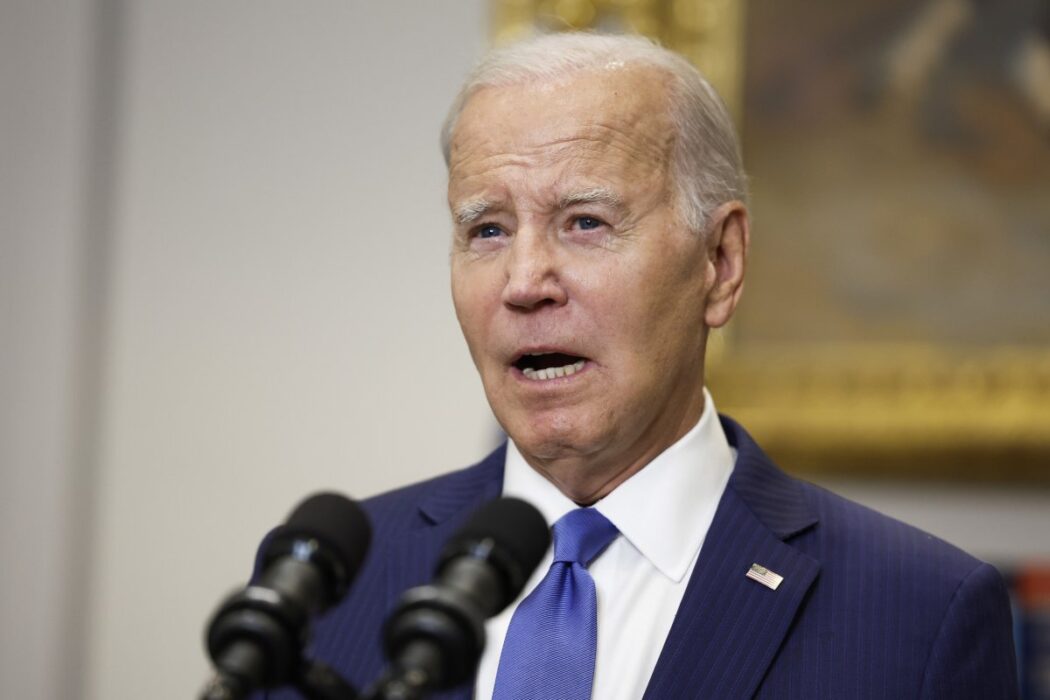On Tuesday, the Labor Department reported that the Consumer Price Index (CPI) in January was up by 3.1 percent from a year earlier. This was a slight decline from December's 3.4 percent but exceeded the projected 2.9 percent by economists in a Bloomberg survey. The report could put pressure on the Federal Reserve to keep interest rates higher for a longer period of time in order to combat rising inflation. This comes as the fight over high prices takes center stage in the 2024 campaign.
Despite the strength of the U.S. economy under President Joe Biden's watch, high prices remain a persistent concern. The president himself has acknowledged this issue, stating that "prices are still too high." With the latest CPI report coming in hotter than expected, it seems this problem is not going away anytime soon.
Housing costs were a major contributor to January's increase in inflation, highlighting the ongoing struggle of many Americans to afford basic necessities. This report may play a role in the Federal Reserve's decision-making process as it grapples with how to control inflation while also stimulating economic growth. If interest rates remain high, it could have a dampening effect on consumers and businesses.
The Republican party has been quick to highlight the inflation issue, using it as a key talking point in their critique of the current administration's economic policies. While the economy has performed well under Biden, the persistence of rising prices is a cause for concern. Inflation has outpaced average weekly earnings since Biden took office, leading to a growing sense of dissatisfaction among the American people.
Good news for folks as we start the weekend. The stock market going strong is a sign of confidence in America’s economy. https://t.co/3nnSiVWOYP
— President Biden (@POTUS) February 10, 2024
EJ Antoni, a public finance economist at the conservative Heritage Foundation, commented on the issue before the CPI announcement, stating that "wages still haven't caught up to the inflation we've seen over the last couple of years." This, he believes, is a major contributing factor to the negative perceptions many have of the economy. Until wages start to rise more in line with inflation, he predicts, this sentiment is likely to continue.
The impact of Tuesday's inflation report is likely to be felt in the months to come, particularly when it comes to the Federal Reserve's decision to cut interest rates. The central bank had planned to lower rates this year but has been facing pushback from Wall Street over the timing. Fed Chair Jerome Powell has already signaled that a March rate cut is off the table, and with the latest CPI news, expectations for a May cut may be pushed back to June or later. As a result, U.S. stocks fell following the report's release.
The CPI report may also provide ammunition for Republicans as they continue to criticize the Democrat's handling of the economy. The White House has attempted to counter these attacks by emphasizing Biden's efforts to address rising prices.
Treasury Secretary Janet Yellen is set to make appearances in swing states this week, and the president himself released a video on Super Bowl Sunday calling out corporations for not cutting prices. In a speech on Monday, he warned against "greedflation" and called on companies to pass their savings on to consumers.
However, according to Joseph Brusuelas, principal and chief economist at RSM US, the key factor in how consumers perceive inflation may be gasoline prices. He notes that when consumers think of inflation, they are often thinking of gasoline and groceries. If prices in this sector continue to moderate, it could work in the incumbent's favor. But, as Bob Elliott, CEO of Unlimited Funds, points out, the question remains whether inflation will pick up again. While goods prices have come down, structural inflationary dynamics such as housing costs and services are still a concern and could impact the overall level of inflation in the future.

